As demand grows for functional ingredients rooted in traditional medicine, reishi mushroom extract has emerged as a cornerstone of modern wellness product formulations. Known for its adaptogenic, immunomodulating, and anti-inflammatory properties, reishi (Ganoderma lucidum) is increasingly featured in dietary supplements, functional beverages, skin care, and more.
However, the quality and efficacy of reishi products vary dramatically. For B2B buyers sourcing ingredients at scale, choosing the right reishi extract can define a product’s success—or its regulatory and reputational risk. This guide provides a strategic framework for identifying high-quality reishi extract, with insights into technical criteria, sourcing integrity, and market compatibility.
1. Understand the Anatomy of a Quality Reishi Extract
The bioactivity of reishi is determined by multiple compound classes, primarily:
Polysaccharides (β-glucans) – for immune support
Triterpenes (ganoderic acids) – for liver function, anti-inflammatory effects, and anti-fatigue properties
Peptides and sterols – for antioxidant and adaptogenic roles
A high-quality extract must not only contain these actives but preserve them at effective and standardized concentrations through a controlled extraction process.
2. Look for Key Indicators of Potency
A credible supplier should be transparent about the active compound concentrations and extraction ratios. Key metrics include:
Polysaccharide Content: Should range from 20–40% for general applications; premium extracts offer >30%.
Triterpene Content: Must be declared; often absent in hot-water-only extracts.
Extraction Ratio: 10:1 or higher suggests concentration, but without active content data, it’s insufficient.
Solubility and Particle Size: Should dissolve uniformly in hot water or alcohol for versatility across formats.
Products like USDA Certified Organic Red Reishi Mushroom Extract Powder often provide batch-level COAs that disclose these values and comply with organic and non-GMO standards.
3. Evaluate the Extraction Method
Reishi’s active compounds require precise handling:
Hot Water Extraction: Ideal for polysaccharides but destroys many triterpenes.
Ethanol or Dual Extraction: Preserves both polysaccharides and triterpenes; preferred for full-spectrum products.
Spray Drying vs. Freeze Drying: Affects solubility and active integrity; freeze drying often preserves more bioactives but is costlier.
Always ask suppliers:
What solvents are used?
Is the extract standardized to bioactive markers?
How are actives preserved during drying?
4. Source Transparency and Certification
Sourcing is not just about geography—it’s about traceability, sustainability, and safety. Key considerations:
Organic Certification: Like USDA, to confirm no pesticides or synthetic inputs.
Farm Traceability: GPS coordinates, farm audits, or blockchain systems improve credibility.
Good Manufacturing Practices (GMP): Facility certifications for consistency and hygiene.
Third-Party Testing: Independent lab verification of actives and contaminants (heavy metals, pesticides, aflatoxins).
Suppliers who offer transparency in these areas demonstrate the operational maturity expected by global B2B buyers.
5. Assess Format Compatibility for Product Development
Formulation-ready reishi extracts come in several formats:
Powders: Ideal for capsules, sachets, drink mixes
Granules: For tea bags or RTD infusions
Liquids: Alcohol or glycerin tinctures for sublingual use
Microencapsulated forms: For stability in functional foods
Work with suppliers who understand your format needs and offer granulation, flavor masking, or carrier adjustment services.
6. Match to Market Trends and Consumer Demands
Today’s consumer seeks:
Clean-label products (organic, non-GMO, vegan)
Targeted benefits (sleep, stress, immune, longevity)
Science-backed claims (clinically substantiated, traceable)
High-quality reishi extracts with strong sourcing stories, clinical links, and formulator flexibility become more than ingredients—they’re category drivers in wellness innovation.
Conclusion
Choosing a reishi extract is not just a procurement decision—it’s a strategic product development choice. By prioritizing bioactive integrity, process transparency, format adaptability, and certification, B2B buyers can build products that meet market expectations, regulatory standards, and consumer trust.
When sourcing reishi for your brand, consider premium options like USDA Certified Organic Red Reishi Mushroom Extract Powder, which deliver both technical rigor and narrative resonance across global markets.
Read More:
Full-Traceability with Integrated Base and Extraction Workshop: What It Really Means
Hangzhou Molai Biotech Co., Ltd has supply capacity 1200+ tons per year for mushroom powders and extracts, including the mushroom mycelium from modern technology of Deeply Liquid Fermentation and fruiting bodies from the grown real mushrooms to meet the different markets.
Hangzhou Molai Biotech Co., Ltd supplies the products both in Powders and Extracts for commercial using worldwidely, such as Cordyceps Sinensis, Cordyceps Militaris, Maitake Mushroom, Lion’s Mane Mushroom, Turkey Tail Mushroom, Reishi Mushroom, Chaga Mushroom etc.
We offer OEM and ODM services, could extract the products according to your special requirements, process the powders/extracts into Capsules, Tablets, Small Bags, Mushroom Bars, Mushroom Coffee etc.
Organic Lion's Mane Mushroom Extract
Organic Reishi Mushroom Extract
Organic Cordyceps Militaris Extract
Organic Turkey Tail Mushroom Extract
Organic Chaga Mushroom Extract
Organic Shiitake Mushroom Extract
Organic Maitake Mushroom Extract
Organic Tremella Mushroom Extract

_ojZOBx.jpg)




